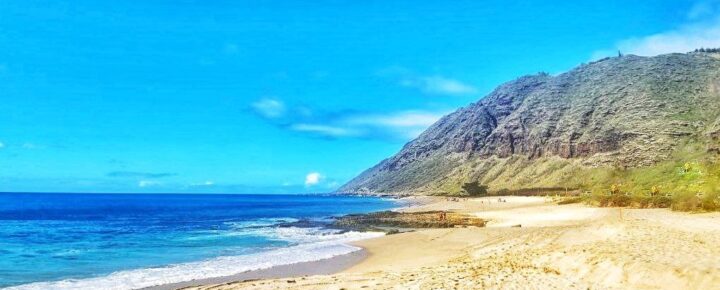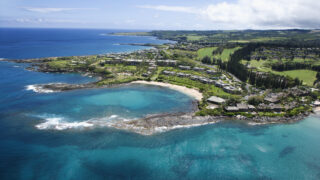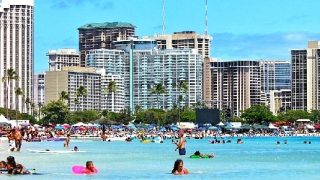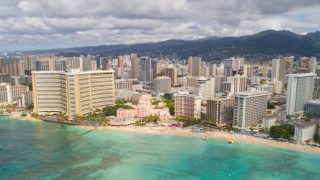Hidden fees have long frustrated Hawaii visitors, with resort charges and cleaning fees often surprising guests during checkout.
A new Federal Trade Commission (FTC) rule, set to take effect this year, aims to make all mandatory fees visible upfront. Here’s how this change could significantly impact Hawaii’s tourism industry and its travelers.
What the FTC rule means for Hawaii travelers.
The FTC rule requires hotels, vacation rentals, and even event ticket sellers to display full pricing upfront, including all mandatory fees. Before checkout, a clearer picture of costs for travelers booking accommodations in Hawaii will soon be available.
For example, a $300-a-night hotel room with a $50 daily resort fee must now be advertised as $350 per night. While the rule doesn’t eliminate these fees, it removes the ambiguity that has long frustrated island visitors.
Since parking is not a mandatory fee, and not all guests have a car, that optional charge is not displayed at booking.
An issue affecting all Hawaiian islands.
Hawaii’s fee practices are statewide. Both hotels and vacation rentals in Waikiki, Maui, Kauai, and the Big Island commonly rely on substantial resort fees and cleaning charges, which can amount to as much as 50% of the total daily charge.
Transparency under the FTC rule could have a significant impact, creating opportunities for properties across the islands to differentiate themselves through clear pricing.
Will this make Hawaii more or less competitive with other destinations?
Displaying full upfront prices might initially make Hawaii accommodations seem more expensive than international destinations without mandatory fees. However, by offering a more transparent booking process, Hawaii properties could attract budget-conscious travelers who value clarity. Time will tell, and the effect could go either way.
The rule could also push some properties to reevaluate whether the added fees align with guest expectations. Hotels and vacation rentals may face increasing pressure to reduce or eliminate certain fees to stay competitive. That could be good news for travelers where daily resort fees vary widely.
How will compliance be enforced in Hawaii?
The FTC plans to enforce the rule through civil penalties, with potential fines of up to $51,000 per violation per day. However, questions remain about how effectively compliance will be monitored in Hawaii.
Some properties may delay adopting the new pricing model, and international visitors might still find the process confusing. Additionally, optional fees not covered by the rule could continue to complicate vacation planning for Hawaii travelers.
Opportunities for Hawaii’s tourism industry.
This rule presents an opportunity for Hawaii properties to stand out. Hotels and vacation rentals that embrace transparency early can position themselves as trustworthy and guest-friendly. Clear pricing could become an increasingly important factor for visitors comparing accommodations.
For smaller operators, particularly vacation rental hosts, the rule provides an opportunity to streamline pricing structures and appeal to a broader audience.
Airbnb now displays the total price of a rental, including all fees (except taxes), upfront in search results, on the map, and on the listing page, meaning the nightly rate shown will incorporate the service fee and any additional fees set by the host, eliminating the concept of “hidden fees” and requiring full disclosure before booking; however, users can still see a detailed breakdown of the price components before confirming their reservation.
What residents and visitors need to know.
The FTC rule is set to take effect 120 days after publication in the Federal Register, which is expected to occur in early 2025. Visitors should anticipate seeing more accurate pricing when booking trips by mid-2025. Those operating vacation rentals should prepare for changes in how they disclose fees.
For travelers to the islands, the rule could reduce the frustration of hidden costs while setting a precedent for greater transparency in our travel industry. The real test will come as the rule rolls out and Hawaii’s tourism sector adjusts to a new era of pricing clarity.
Share your thoughts in the comment section. This is one change we are looking forward to.
Get Breaking Hawaii Travel News







This rule needs to include all so-called “taxes,” especially for rental cars. There is no bigger joke than the Hawaii rental car “base rate.” Just look at this nonsense:
Hawaii State Taxes
(all car rental locations)
Rental Motor Vehicle Surcharge: $3.00 / day
Vehicle Registration Fee: $0.50 – $1.25 / day
Hawaii State General Excise Tax: 4.17% (Oahu 4.71%)
Airport Location Taxes
(airport locations)
Airport Concession Recovery Fee: 11.11 %
Customer Facility Charge: $4.50 / day
We love Hawaii, it is a special place for sure. But with prices that are out of control and all the hidden fees it is becoming more difficult for us to afford to visit the islands anymore. Sad to say I don’t know when or if we will ever be back.
Good Morning
Thank you for this important information on traveling to islands
Sincerely
William B
I’ll believe it when I see it
We have pretty.much stopped going to Hawaii due to the fact that when u book on sites like VRBO and Air B and B, a nightly rate starts out at say $300, quickly balloons to over $500 with ” manager fee” ” service fee” resort fee” ” booking fee”, not to mention the highest room tax in the nation.
I’ve found a lot better rates ( $100 per night) in Central America and Mexico.
Yes, I know it’s not Hawaii but it’s two thirds less!
Will total pricing include the many taxes?
Aloha,
This is a welcome change. It’s only fair to know what the total costs of fees are before arriving at accommodations.
About time!
Who cares, the tourist/accommodation taxes are a joke. I can spend 8 weeks in Thailand including flights with no expenses spared for the same I can for one week in Hawaii.
Yea, but it’s Thailand.
Thailand is absolutely beautiful!
Hawaii needs to get over itself. It has an overinflated view of its own desirability as a destination.
It has pretty scenery, but other issues (anti-tourist attitudes, litter and filth along the sides of the road and in public restrooms, cost-prohibitive accommodations, tacked-on fees everywhere, threatening messaging about short-term rentals, etc.) are beginning to detract from its prettiness and its traditionally positive reputation.
Scenery isn’t everything, and, believe it or not, there are hundreds, of other destinations in the world that are just as scenic, and that provide a much more holistically satisfying experience.